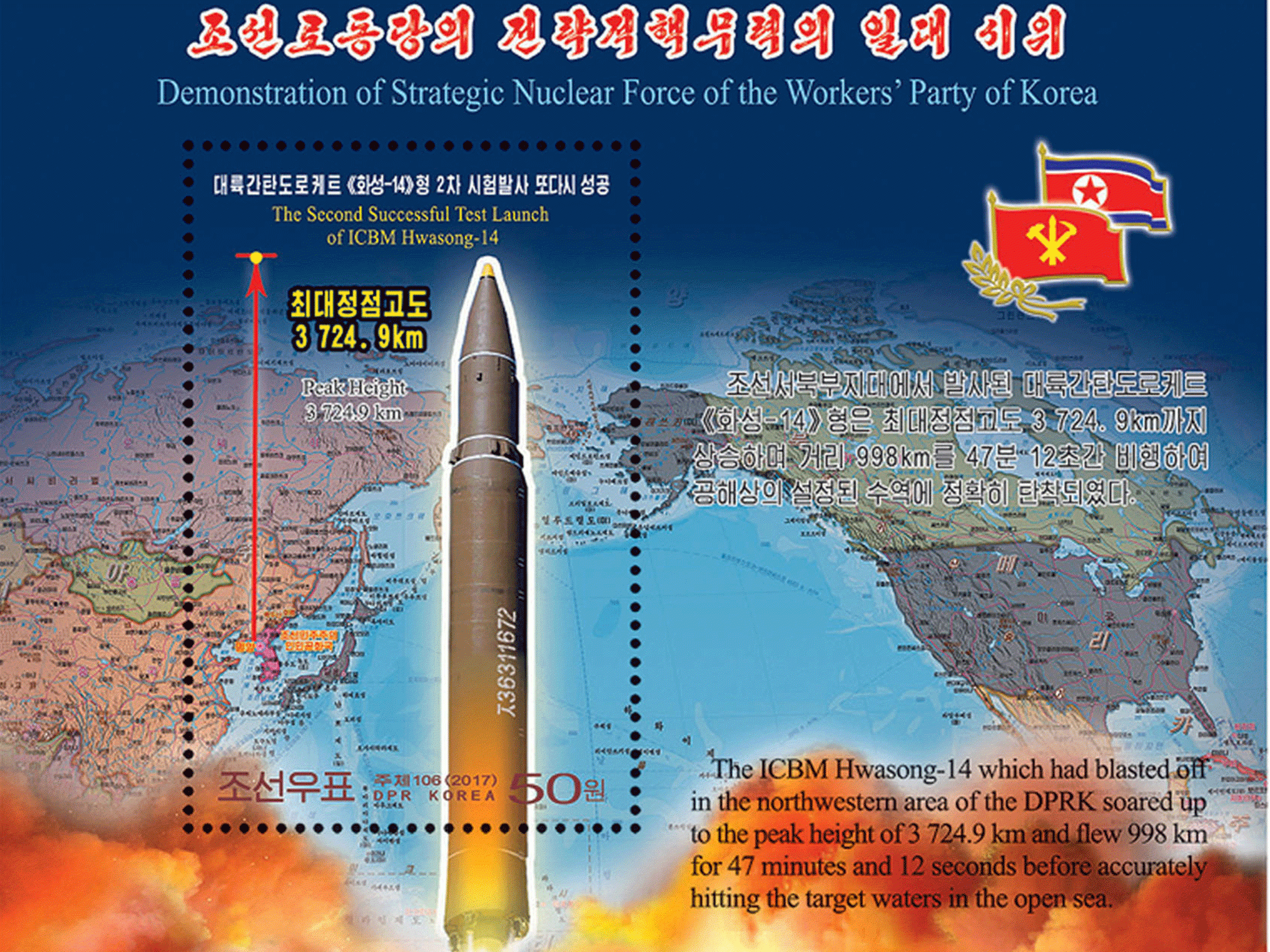US policy is 'not to defend Canada' from an attack by North Korea
However, government minister says Pyongyang perceives Canada as ‘a peaceful and indeed a friendly country’

Your support helps us to tell the story
From reproductive rights to climate change to Big Tech, The Independent is on the ground when the story is developing. Whether it's investigating the financials of Elon Musk's pro-Trump PAC or producing our latest documentary, 'The A Word', which shines a light on the American women fighting for reproductive rights, we know how important it is to parse out the facts from the messaging.
At such a critical moment in US history, we need reporters on the ground. Your donation allows us to keep sending journalists to speak to both sides of the story.
The Independent is trusted by Americans across the entire political spectrum. And unlike many other quality news outlets, we choose not to lock Americans out of our reporting and analysis with paywalls. We believe quality journalism should be available to everyone, paid for by those who can afford it.
Your support makes all the difference.It is official US policy not to protect Canada in the event of a missile attack by North Korea or any other country, a leading general has warned.
It has long been assumed that Washington would defend its northern neighbour.
However, General Pierre St-Amand, the highest-ranking Canadian officer in the North American Aerospace Defense Command (Norad), dismissed the idea during a parliamentary committee meeting in Ottawa.
“The extent of the US policy is not to defend Canada. That's the fact I can bring to the table,” he said.
This statement surprised many in Canada, with public broadcaster CBC saying it had “demolished a long-held political assumption” that the US would intervene.
Norad is a joint US and Canadian organisation “charged with ... the detection, validation and warning of attack against North America whether by aircraft, missiles, or space vehicles, through mutual support arrangements with other commands”.
However, General St-Amand suggested the official policy might not necessarily be the one carried out in the event of an attack.
A decision would be made “in the heat of the moment” by the Trump administration and US military commanders, he said.
Mark Gwozdecky, assistant deputy minister for international security at Global Affairs Canada (the government department that handles diplomacy) said there had been “no direct threat to Canada” from North Korea.
“On the contrary, in recent contacts with the North Korean government, including in August when our national security adviser was in Pyongyang, the indications were they perceived Canada as a peaceful and indeed a friendly country,” he said.
However Mr Gwozdecky added that North Korea’s recent actions – which include nuclear bomb tests and firing missiles over Japan – “represent a grave threat to regional security, our friends and allies, South Korea and Japan”.
Politicians in Canada has suggested joining the US missile shield system for a number of years, but Ottawa has never actually done so.
Join our commenting forum
Join thought-provoking conversations, follow other Independent readers and see their replies
Comments